Watch all the penalties as England beat Sweden
Emma Smith
BBC Sport journalist
The penalty shootout between England and Sweden at Euro 2025 will go down as one of the most dramatic in football history.
Of the 14 spot-kicks taken, only five were scored, with six saved and three missed for a conversion rate of just 35.7%.
A bizarre outlier? Not so much. At Euro 2025, penalties have been far from a guaranteed source of goals, with a tournament success rate of 58.5%.
Spain failed to score either of their two penalties against Switzerland on Friday, and Germany had one saved in normal time when they faced France, before another three went awry in a 14-penalty shootout that admittedly lacked the chaos of England v Sweden.
The success rate is the lowest at this stage of a women's tournament in the past 15 years. In comparison, 84.4% of penalties were scored at 2015 World Cup.
Across the seven major women's tournaments since 2011 and before Euro 2025, the success rate was 72.99% - slightly up on the 70.56% scored in men's competitions since 2010.
So why are penalties now so much harder to score at major women's tournaments? BBC Sport dug into the stats, asked the players and managers, and quizzed the experts to try to find an answer.
More interest, greater expectations
There is no question there is greater interest in women's football than ever before, particularly in England since they won Euro 2022.
A total of 7.4 million people watched their 2025 quarter-final against the Swedes on BBC One, and there has been a growth in media interest in the past three years.
Women's Super League games are now played at larger stadiums, and many of the Lionesses are household names.
Being put under a greater spotlight could be a major factor in missed penalties, according to Geir Jordet - professor of football and psychology at the Norwegian School of Sports Science, and author of Pressure: Lessons from the Psychology of the Penalty Shootout.
"We know from research that penalty takers are vulnerable to pressure," he told BBC Sport. "Most of this research has been done on men, but when pressure goes up, performance goes down.
"It is interesting in the women's game... the interest has exploded in the past five years. I am curious about whether that has an effect on these players.
"Of course there are exceptions, and in the WSL a lot of people watch some games. But Premier League players perform for 50,000 every week and to millions at home. That is new to these players.
"I'm not saying female players are worse under pressure, I am saying the pressure is relatively speaking higher now than it used to be. You need to experience this to find the ways to cope with that.
"There is so much learning taking place, and I think women's teams are more ready to absorb this. Football is more conservative on the men's side."
Jordet's theory seems to have some basis in reality, with England forward Chloe Kelly saying their ability to perform under pressure gave them the edge.
England have now won all three shootouts under Sarina Wiegman - against Sweden, Nigeria at the 2023 World Cup, and Brazil at the Finalissima at Wembley.
They have also reached at least the semi-finals of every World Cup and Euros since 2015.
Importance of data
While increased interest in women's football adds to the pressure, it also brings increased finances - allowing for more research and coaching.
Players by and large try to perfect a particular style of penalty, and work on that in training and games. But thanks to better scouting and data analysis, opponents can anticipate their moves with a greater degree of accuracy too.
Sweden keeper Jennifer Falk had a list of England's takers and their penalty style on her water bottle - and saved four spot-kicks in the shootout.
The 32-year-old and her England counterpart Hannah Hampton both went the right way for five of the seven kicks they faced.
Germany's Ann-Katrin Berger followed the same method as Falk, with TV cameras picking out her list during extra time.
"The takers have been rigorously mapped out - the keepers know these takers more now than in the past," said Jordet.
"If you add the pressure, takers tend to fall back on a default pattern and will shoot in the way they are most comfortable doing."
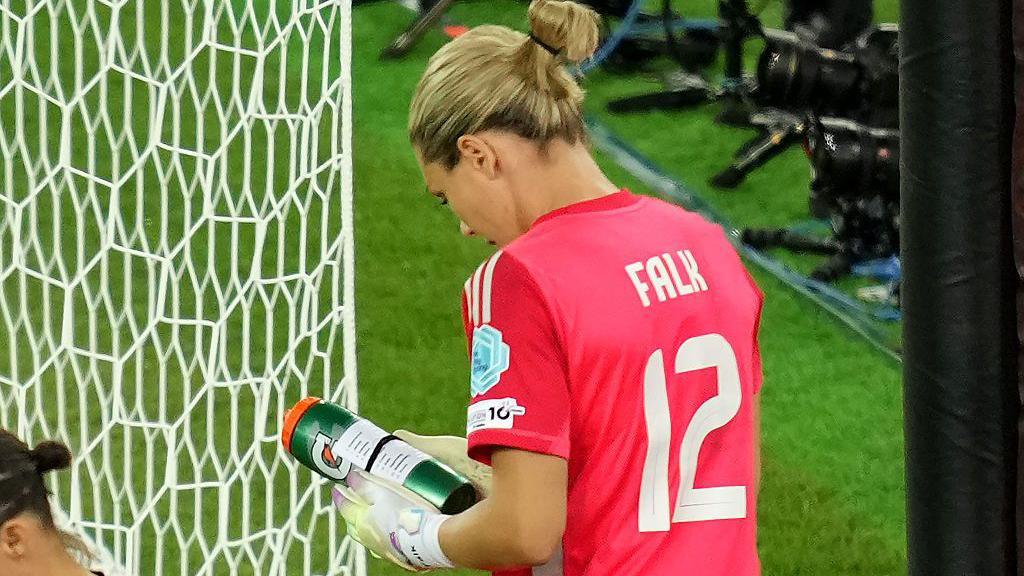 Image source, Getty Images
Image source, Getty Images
Sweden keeper Jennifer Falk had details about England's penalty takers on a note strapped to her water bottle
As in men's football, there is still a school of thought that penalties are a lottery and practice can never make perfect.
Speaking before the match against England, Sweden manager Peter Gerhardsson said: "Somewhere it is a personal responsibility. The players who want to practise penalties can, but we haven't set up anything.
"It is one of the most difficult moments in football. It is so difficult to prepare."
That is a rare - and perhaps outdated - approach, though, and not one England subscribe to.
Asked how much they had prepared for penalties, captain Leah Williamson said: "Loads.
"I know there were a few more misses than normal, but everybody does [that]. It's something you have to box off before a tournament."
Keepers 'finding ways to be smarter'
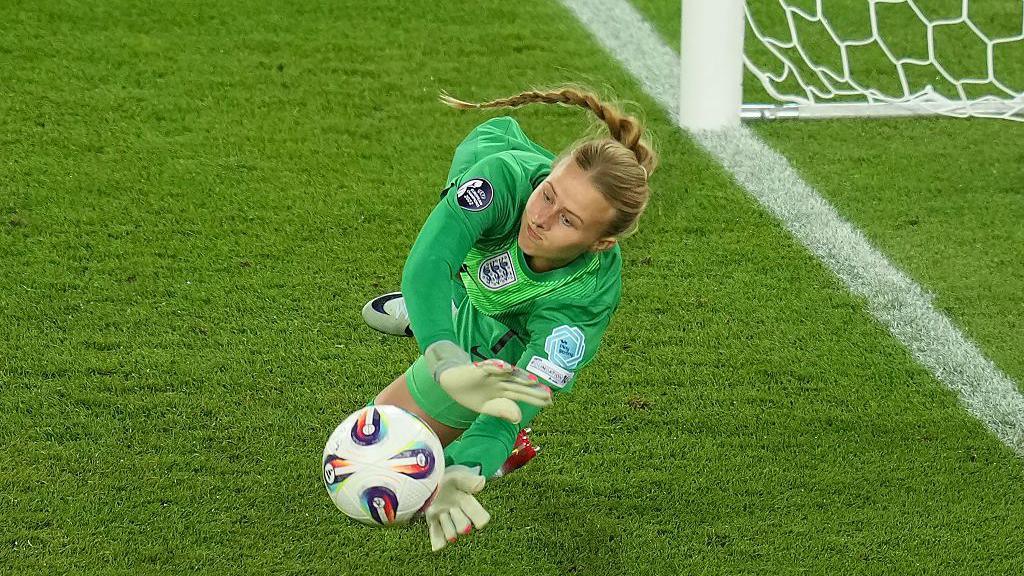 Image source, Getty Images
Image source, Getty Images
England keeper Hannah Hampton saved two Sweden penalties, and five shots during the game itself
As well as being better prepared, Jordet also feels female goalkeepers are more capable physically, thus allowing them to more easily save penalties.
"For a long time, goalkeeping has been less developed in the women's game," he explained. "There are physical limitations such as height and it is more difficult to defend the goal than male counterparts.
"But now with increased professionalisation, they are finding ways to be smarter, to read their opponents."
For years, critics of women's football have gleefully posted videos of goalkeepers struggling to stop tame shots, or posted on social media and under online articles how women should play with smaller goals or pitches.
But whether it was the five saves Hampton made on Thursday against Sweden, the four penalties stopped by Falk, or the absence of amateur keepers at the Euros, there is less evidence to support that view.
Indeed, when Falk herself stepped up to take the fifth penalty against England, Hampton was worried as the Lionesses had not prepared for how she would take them.
"I think sometimes keepers don't get enough credit," England back-up goalkeeper Khiara Keating told BBC Radio 5 Live.
"Obviously there's the backstage things that you don't see - the analysis, the hard work in training, the reading, the body language. The keeper standard is getting way better."
What does the future hold?
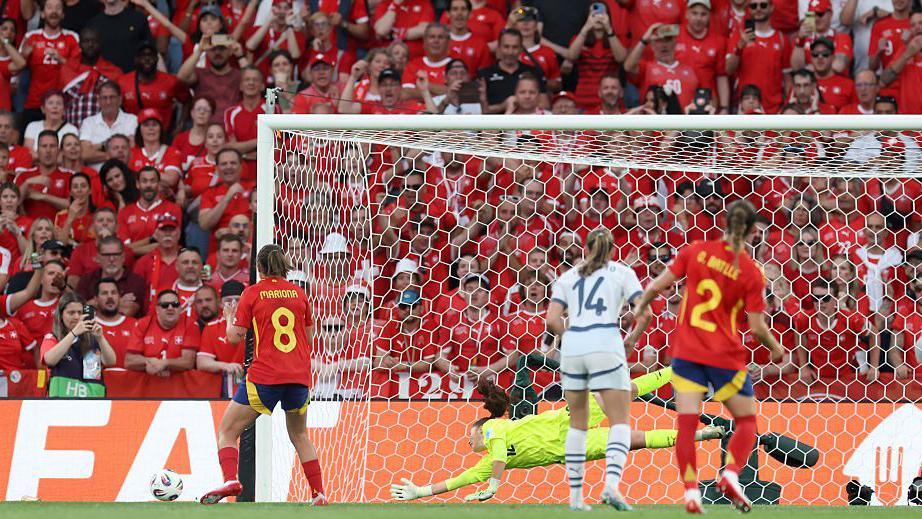 Image source, Getty Images
Image source, Getty Images
The penalty sent wide by Spain's Mariona Caldentey (number eight) against Switzerland was the fourth missed out of 11 spot-kicks during regular play at Euro 2025
Of course, there is some truth in the old adage of penalties being a lottery. Of all things in the micromanaged world of modern football, luck remains a key ingredient.
"There may be no real reason, it could be random," admitted Jordet. "Another 25 penalties and it might even out."
That was Gerhardsson's primary excuse after his side became the first team at a women's Euros to lose a penalty shootout after their opponents missed three of their own kicks.
"You might take five penalty kicks a year and you might be 3-0 up," he said. "At the end of the day, you don't have anyone who would like to take a penalty."
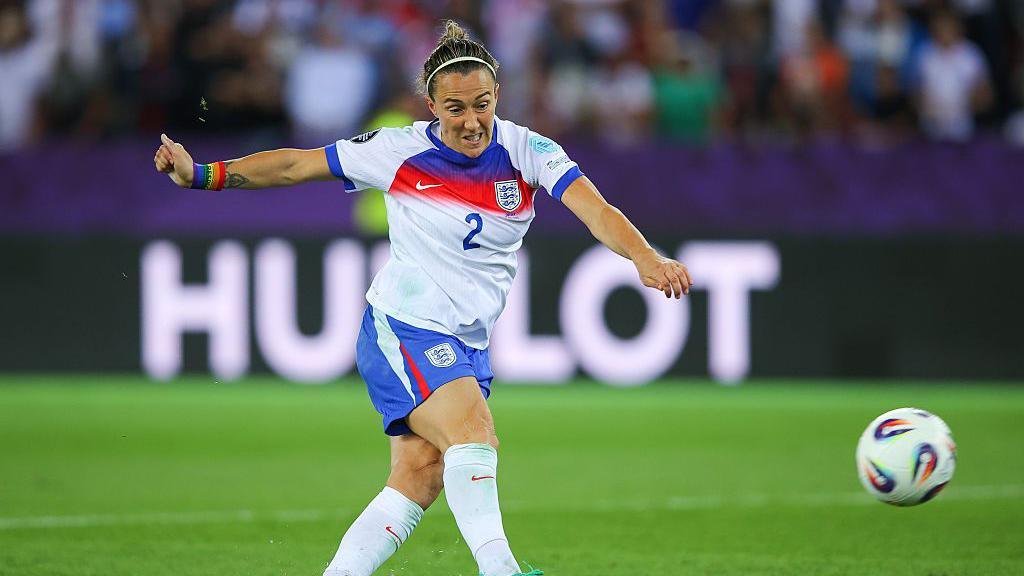 Image source, Getty Images
Image source, Getty Images
Lucy Bronze was the fifth and final player to score a penalty in England's 3-2 shootout win over Sweden
But as women's football continues to rise from the ashes of a 50-year ban, technique all over the pitch will improve, and styles of penalty-taking more common in men's football will emerge.
This includes what Jordet called the "keeper-dependent technique", where a player steps up to the ball, looks at the keeper and where they move, then rolls it the other way.
It is commonly seen from players such as Barcelona striker Robert Lewandowski, yet very rarely in women's football.
None of the 14 takers in the Sweden-England tie waited for the keeper to move. Spain's Mariona Caldentey demonstrated the downside of that method, though, during her side's 2-0 last-eight win as Switzerland keeper Livia Peng called her bluff, did not move and dived the right way as the penalty rolled wide of the target.
But we should expect to see more flexibility and a better penalty technique in women's football - and it was that adaptability that ultimately helped England progress.
Lucy Bronze scored their decisive penalty with a strike measured at more than 63mph, although she later revealed to BBC Sport this was not her original plan.
"I hurt my leg a little bit in the game, so I kind of changed my mind," said the Chelsea full-back.
"Also I watched the goalkeeper in every single penalty and she dived quite early, and statistically in a shootout it's quite risky for the keeper to stand still and [someone] go down the middle.
"So yeah, I love maths."




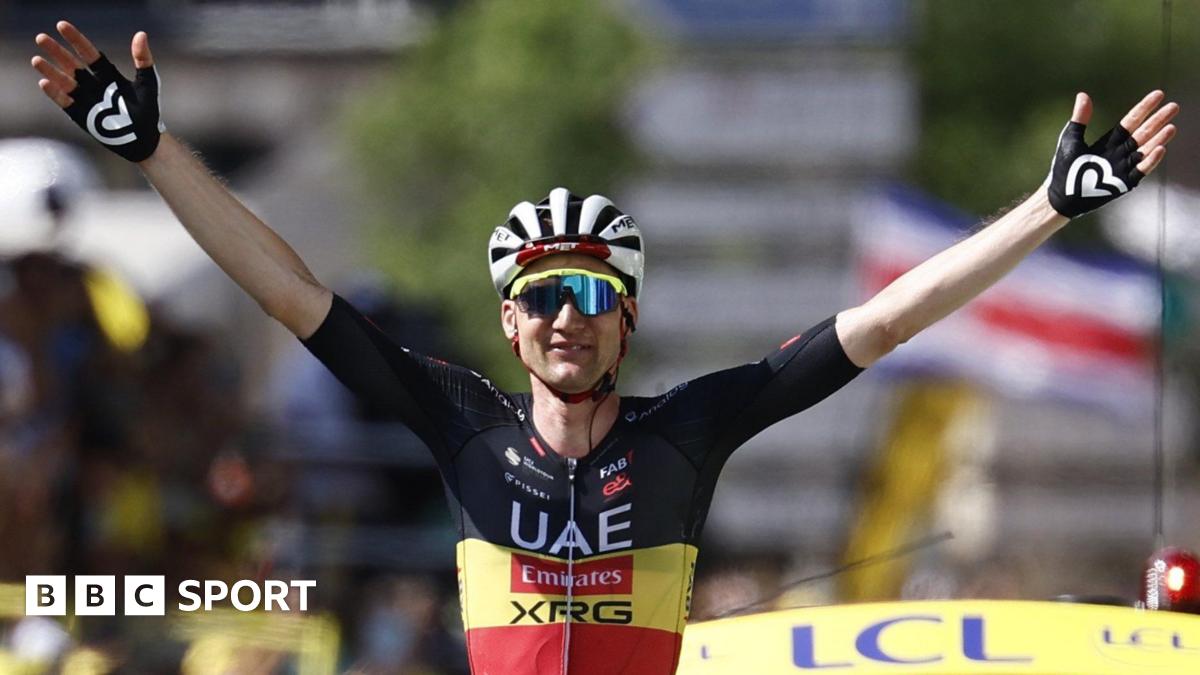

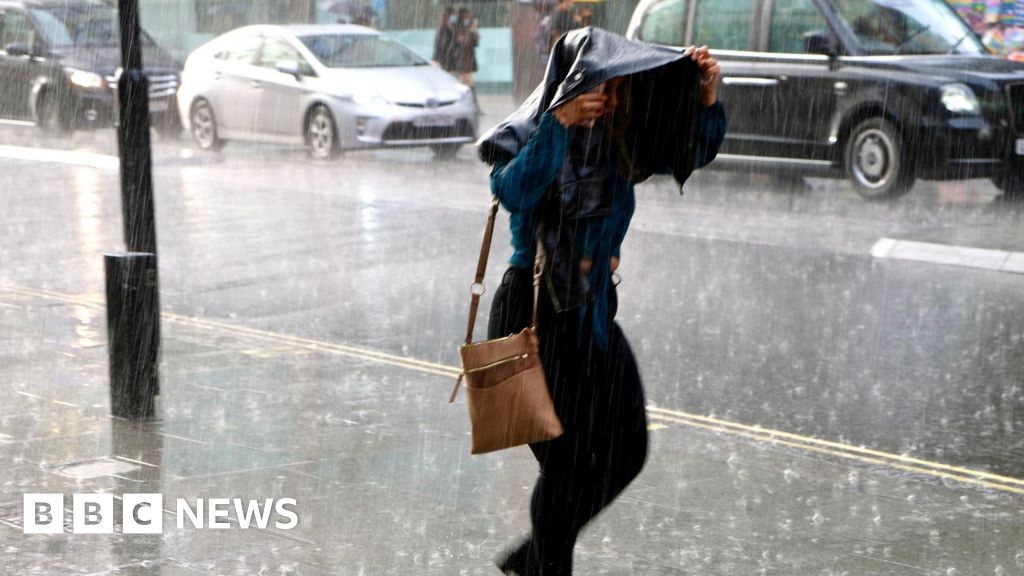



 English (US) ·
English (US) ·